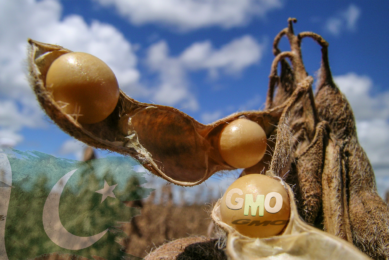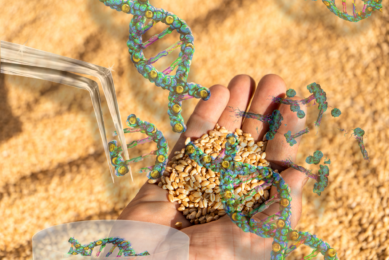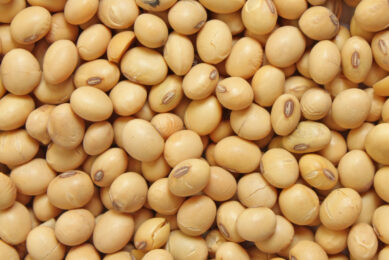Gene editing given the green light in England

Crop production in the UK has been given a boost following the coming into law in England of the Genetic Technology (Precision Breeding) Act.
The move has been welcomed by the UK’s agri-supply trade association, the Agricultural Industries Confederation (AIC), which said the legislation had the potential to bring significant benefits to the environment, producers, the supply chain and consumers.
Withstanding climate change
Crops bred using the genetic technology can be made to better withstand the effects of climate change, such as drought or flooding, as well as having greater resistance to disease and pests. Gene editing could also help with producing more home-grown protein for animal feed, cutting the UK’s dependence on imports.
Robert Sheasby, AIC chief executive, said it was clear that more efficient plant breeding technologies could play an important future role in feeding the nation: “While precision breeding is by no means the sole answer to the challenges of climate change and straining food systems, the potential that could be achieved in a variety of agricultural sectors cannot be overlooked.
“Precision breeding is an opportunity afforded to the UK’s EU exit to unlock agri-food innovation, and AIC has worked closely with the Government as this legislation was developed to ensure it is workable in practice.”
Scotland & Wales do not support Precision Breeding Act
One challenge that remains is regulatory divergence. The legislation passed in Parliament only applies to England, as Scottish and Welsh devolved governments do not currently support it. However, food produced using precision breeding techniques in England can be legally marketed in Scotland and Wales under the UK Internal Market Act. The European Union is currently debating its own legislation on precision breeding, making the UK a world-leader in legislating for the use of this technology.
Precision Breeding technologies are the future of food production not just at home but around the world…
Defra’s Chief Scientific Adviser Gideon Henderson said it was an important time for agricultural science: “The ability to use gene editing to make precise, targeted changes to the genetic code of organisms, in a way that can mimic traditional breeding, enables development of new crop varieties that are more resistant to pests, healthier to eat and more resilient to drought and heat as our climate changes.”
Mark Spencer, Food and Farming Minister, added: “Precision Breeding technologies are the future of food production not just at home but around the world, and this Act will put us at the forefront of this revolution.”
Scientists were equally supportive
Jane Langdale, Professor of Plant Development at the Department of Biology at Oxford University and lead author of the UK Plant Science Research Strategy said the Act would set in motion changes to allow farmers to reduce use of fertilisers and pesticides and help breed animals that would be protected from catching harmful diseases.
Professor Mario Caccamo, NIAB chief executive, added that the legislation had followed field trails of precision bred crops, which had already stimulated new research activity across a range of crop species and traits. These include the development of wheat with improved food safety, oilseeds with enriched Omega-3 oils, tomatoes with enhanced vitamin content and barley with the potential to improve livestock productivity while reducing greenhouse gas emissions.
“The new regulatory framework should provide a more straightforward route to market for innovations like these.”
David Exwood, NFU vice president, said the passage of the legislation was just the first step: “As it is implemented through further legislation, regulations must be fit for purpose if it is to provide a meaningful boost to our food resilience and food security.”











